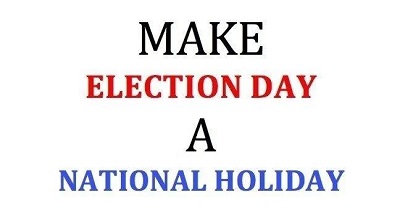Context
In the vibrant tapestry of democratic nations, the act of voting stands not only as a privilege but as a fundamental duty woven into the fabric of constitutional principles. Across the globe, countries like Australia, South Africa, and France have embraced the notion of election day as a holiday, recognizing its significance in fostering robust participation in the democratic process. However, the debate surrounding the obligation of employers, particularly Small and Medium-sized Enterprises (SMEs), to declare election day a holiday has sparked intriguing discussions in recent times. While some advocate for the sanctity of this practice, drawing from constitutional mandates, others question its necessity and potential encroachment on individual liberties. Notably, various member-countries of the Organisation for Economic Co-operation and Development (OECD) conduct national elections on weekends, showcasing diverse approaches to facilitating voter turnout.
Examining the Mandate: Balancing Civic Responsibility and Personal Freedoms
The mandate for employers to declare election day a holiday prompts crucial inquiries into the equilibrium between civic duty and personal freedoms. Should businesses be coerced into providing a paid day off when voting remains non-compulsory? Is it equitable to impose such obligations on employers, particularly in the context of a free market economy? Proponents of mandatory holiday declaration contend that the Constitution of India venerates the right to vote as a cornerstone of democratic governance. Consequently, granting employees a day off to access polling booths is viewed as a pragmatic strategy to uphold this constitutional prerogative. Additionally, industry bodies such as the Federation of Indian Chambers of Commerce and Industry (FICCI) and the National Association of Software and Services Companies (NASSCOM) are expected to endorse broader societal objectives, including fostering voter participation.
Conversely, opponents of mandated holidays emphasize individual autonomy and the tenets of a free-market ethos. In a democracy, citizens possess the liberty to opt for or against exercising their voting rights. By extension, employers should retain discretion in determining operational policies, including the provision of a paid holiday on election day. Compelling them to do so might be construed as an infringement on their autonomy and could potentially burden smaller enterprises with limited resources. Moreover, comparisons with democratic counterparts like the United States, where election day isn't a national holiday and individuals are responsible for managing their schedules to cast votes, further complicate the discourse.
Importance of Providing Election Day as a Holiday
Amidst the fervent discourse, the question emerges: what course should India adopt? Should it mimic the American model, allowing flexibility and adaptation to varying business exigencies and cultural dynamics? A recent proposition by Tamil Nadu's Home Secretary, P. Amudha, suggests an innovative middle ground: linking paid leave to proof of voting. This proposal incentivizes voter turnout while preserving employer prerogative, offering a nuanced solution to address both civic engagement imperatives and business concerns. Under this arrangement, employees gain the opportunity to exercise their democratic rights while fulfilling their professional obligations, thereby striking a delicate balance between individual liberties and societal obligations.
From a broader perspective, the debate on election day holiday mandates transcends mere legalities, delving into the very essence of democracy itself. It's about cultivating a culture of civic engagement while acknowledging the multifaceted needs and circumstances of citizens and businesses alike. Rather than imposing rigid mandates, policymakers are urged to explore innovative avenues that promote voter participation without unduly burdening employers. Looking ahead, advancements in technology may pave the way for remote voting, untethered by geographical constraints or temporal limitations. As such, the discourse surrounding employer obligations on election day beckons a nuanced exploration of democratic principles, individual freedoms, and economic exigencies.
Conclusion:
In conclusion, the debate surrounding the obligation of employers to declare election day a holiday epitomizes the intricate interplay between democratic ideals, individual liberties, and economic realities. While the Constitution underscores the pivotal role of voting rights, it is imperative to strike a balance that honors both civic responsibilities and business autonomy. By fostering dialogue and embracing flexible solutions, India can uphold its democratic ethos while accommodating the dynamic tapestry of its diverse society. As the landscape of democracy evolves, it is essential to navigate this discourse with sensitivity, ensuring that the sanctity of elections remains upheld while respecting the myriad perspectives of stakeholders involved.
|
Probable Questions for UPSC Mains Exam 1. UPSC Mains Question 1: Discuss the nuanced debate surrounding the obligation of employers to declare election day a holiday in democratic nations, highlighting the tensions between civic responsibilities and individual freedoms. Examine the relevance of constitutional principles in shaping this discourse, while also considering the role of economic factors and comparisons with international practices. (10 marks, 150 words) 2. UPSC Mains Question 2: Evaluate the proposal by Tamil Nadu's Home Secretary, P. Amudha, to link paid leave to proof of voting as a means to incentivize voter turnout while maintaining employer discretion. Assess the potential benefits and challenges of such a middle-ground approach, considering its implications for democratic participation, business operations, and societal obligations. (15 marks, 250 words) |
Source – The Hindu







